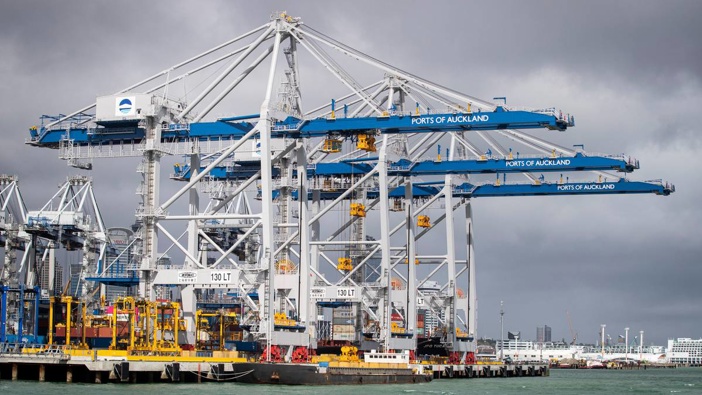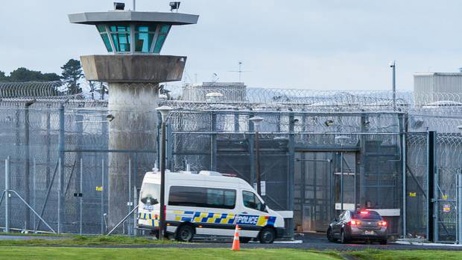We all know that New Zealand is a trading nation. We need to sell stuff to make the money we need to build hospitals, pay our teachers and police officers, pay for benefits and Super, pay for roads and cycleways, and the like. To maintain our standard of living we have to earn our keep, and that's what our exporters do. We need good exporters, and we need to be able to get our stuff to market.
However, port inefficiencies around the country could undermine New Zealand's goals to double its export earnings. I think there have been polite snorts of derision when that bold claim has been stated, especially given what's been happening in recent times. The Cargo Owners Council says there's been a 30% drop in productivity since 2019. Chair Brent Falvey says there needs to be a comprehensive reset of our ports and a strategy for the whole supply chain. The International Container Alliance Committee (ICLC), representing international container shipping lines in New Zealand, has got in on the act too, calling for a lifting of productivity across all ports in the country. They say, “we note that overall the ship rate is reduced from 68 moves per hour in the first quarter of 2019 to 55 moves per hour during a similar period in 2025, across the four largest ports.” That's close to a 20% reduction in productivity and is very concerning, says the ICLC. Brent Falvey told Mike Hosking this morning that we just aren't keeping up with the rest of the world.
“As you probably know, there's more than 400 ports around the world and New Zealand, from a productivity point of view, is in the bottom 20%. The majority of our ports are congested and poor productivity. Since 2019, productivity declined by up to 30%, and costs have gone up, and things are a mess.
“What we think we need to do is actually have a reset. We're talking to the government, we're saying we need to have a hub and spoke model around the ports, the hub is actually big, deep-sea ports that are really efficient, and the spoke with small ports moving cargo to those large ports and that would be done by coastal shipping, it would have to be hand in hand with rail and road. I mean you've probably noticed that there's been some good work done at rail. They've had a bit of a reset, but to go to the next level for rail, they need volume that will drive efficiencies and cost.”
We have, according to the industry, a five year window to get the supply chain back on track or we risk being serviced out of Australia. The shipping companies just won't bother coming here. It's not worth their while and that would add costs to exports and increased time to market. Some shipping lines say it's already too late, with shipping companies scaling back direct New Zealand services and hubbing out of Australia.
Port companies say health and safety changes, as well as ships not arriving when they're supposed to, as contributing to the productivity question. But you can't really blame unions taking a long, hard look at health and safety processes, given the number of deaths on ports around the country. Sure, increase our productivity, but not at any cost, not at the cost of lives, because you haven't got things right. People don't have to die to make the ports more efficient.
In the Blue Highway series that Business Desk produced, the shipping lines and the New Zealand Cargo Owners Council supported a move to that hub and feeder network that Brent Falvey talked about. A small number of ports would serve as the main ports of call for larger international vessels, and the remaining regional ports would play a feeder role. And again, that use of coastal shipping would transport cargo to and from the international hub ports. Now there may need to be regulatory changes to allow foreign operators to play a greater role in the coastal network, there may not be enough domestic flagships to do that, but that's tinkering around the edges. Right now, we have a very small window of time to improve our productivity in our ports so that our exporters can have a chance of competing on the international global markets. It is absolutely vital that our ports are productive and safe and efficient because the international shipping companies simply do not care. We make up 1% of their business, cutting us off would mean very little to them. It would mean quite literally the world for us.
When it comes to making these big, deep-sea ports, this is where you need to fast track it. Can you imagine if five years from now we'd still be going through the consent process? There's been much talk in recent years about how to improve our ports because the decision makers know just how important it is to get our goods to market. We've talked about trying to increase the ports in Auckland, and that is indeed what they're going to do, expanding some of the wharves there. The automation was tried that didn't work for very obvious reasons. There's been talk of moving the port north, I think that's dead in the water despite Martua's best intentions. Port of Tauranga has been trying to grow its space. It is monolithic already. When you go to The Mount, it is dominated by the wharf. But size doesn't matter in this case. We need productivity. We need efficiency. We need to get these ships in and get them out far more quickly than we're doing now.
Take your Radio, Podcasts and Music with you










